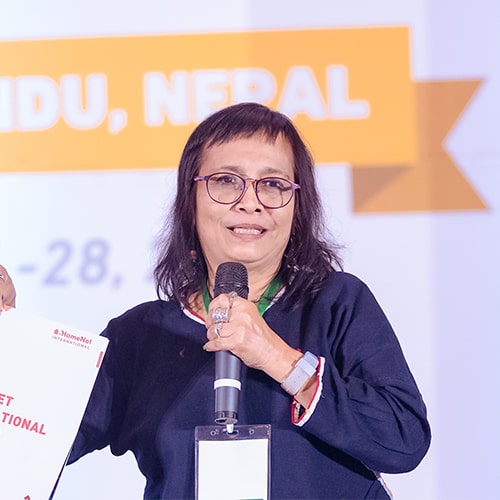HomeNet Southeast Asia (HNSEA) is a network of the more than 30,000 home-based workers (HBWs), both self-employed workers and sub-contracted homeworkers, in the Southeast Asia Region. The members of HNSEA in each country have also included other types of workers in the informal economy such as street vendors, domestic workers, construction workers, waste pickers, taxi drivers, and motorcycle taxi drivers.


Executive Director, HNSEA
Email: [email protected] / [email protected]

Executive Director, HNSEA